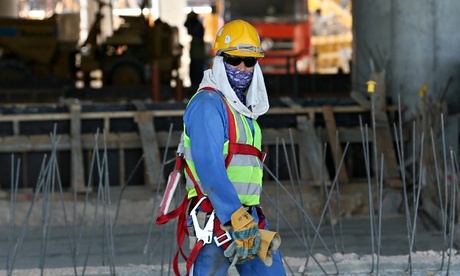
Aidan McQuade's recent blog on Guardian Sustainable Business raises important questions about how to tackle forced labour – and other critical ethical issues – in global supply chains. According to the the International Labour Organisation (ILO) nearly 21 million people are victims of forced labour, which only highlights that much more needs to be done, and quickly, to tackle the problem.
Legislation has a vital role to play in tackling supply chain challenges by requiring companies to take action on key issues. For example, the California Transparency in Supply Chains Act (pdf) requires certain businesses to disclose the efforts they are making, if any, to eradicate human trafficking and slavery from their supply chains. New anti-slavery powers announced last week in the Queen's speech are a welcome step forward.
But new legislation is not always the complete solution. It took 104 years to reform bribery law in the UK, a consequence of the challenges of getting business and government to agree on a workable definition of corruption. It can also take some time for new laws to be fully enforced. The lack of corporate prosecutions under the Bribery Act has led some to question (pdf) the Serious Fraud Office's appetite for enforcement, though there are signs that more prosecutions under the Act are on their way.
In creating disclosure requirements on the sourcing on conflict minerals, Dodd-Frank has brought welcome supply chain transparency in the US. But some have expressed concerns that the Act is reportedly putting miners out of work in the eastern Congo - and doing little to improve the security situation or the daily lives of people who live there.
The ILO defines forced labour as "all work or service which is exacted from any person under the menace of any penalty for which said person has not offered himself voluntarily". A penalty, in this case, could be physical constraint, or it could refer to other forms of abuse such as threats of deportation, passport confiscation or wage non-payment that binds a worker to the employer.
Businesses – and law-makers – must take these many manifestations of forced labour into account when tackling the issue. Corporate supply chains can be vast, multi-tiered and cut across many jurisdictions, all of which create additional legal complexities.
Good examples of companies tackling modern day slavery do exist. The Stronger Together initiative is designed to equip UK employers with the knowledge and resources to recognise the signs of worker exploitation and to tackle it in the food and agriculture industries. It was developed by the Association of Labour Providers (ALP), the Gangmasters Licensing Authority (GLA) and Migrant Help, with sponsorship from five UK retailers: the Co-operative Food, Marks & Spencer, Sainsbury's, Tesco and Waitrose.
Unilever opened its supply chain to Oxfam for a report investigating labour issues surrounding the company's factories in Vietnam. In response to the report findings, Unilever made commitments to improve labour issues and workers' conditions in its factories worldwide. The company also invited Oxfam to return to review the progress made.
The Bangladesh Accord, Alliance and investor collations setup in the wake of the Rana Plaza tragedy are examples of business taking voluntary action to improve working conditions and safety. These initiatives are not perfect, but they are creating a focused approach among companies – and their investors – in tackling issues in Bangladesh. We need to see more companies using such partnerships to understand the root causes of worker exploitation in their supply chains.
Legislation has an important role to play as a stick to get more companies to address forced labour by defining minimum standards and setting out expectations for business to abide. But this must go hand in hand with better guidance to increase corporate understanding of modern-day slavery, convince companies of the need to act and replicate good practice, and give them the tools and resources they need to detect and act on the issue.
Mark Robertson is head of communications at the global responsible supply chain specialist Sedex
The supply chain hub is funded by the Fairtrade Foundation. All content is editorially independent except for pieces labelled as advertisement feature. Find out more here.
Join the community of sustainability professionals and experts. Become a GSB member to get more stories like this direct to your inbox.

